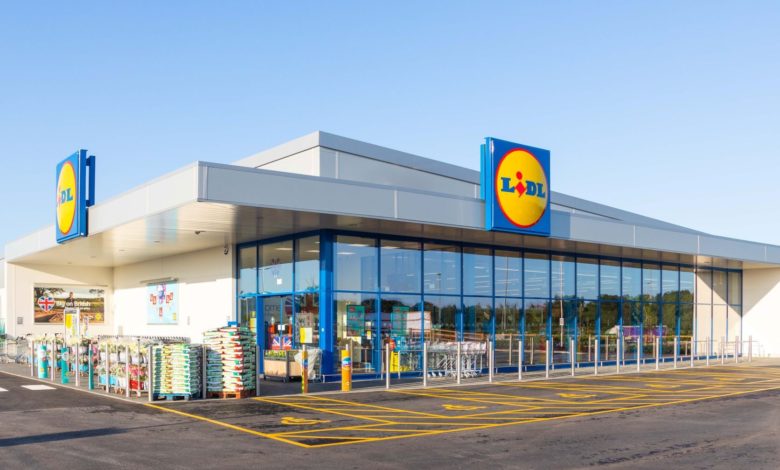A Lidl bit more: Why is Lidl investing in expansion?
Retail Sector delves into Lidl’s £500m expansion plans quantifying how they might affect other supermarkets and whether a CMA review could slow down or accelerate the plans

Register to get 1 free article
Reveal the article below by registering for our email newsletter.
Want unlimited access? View Plans
Already have an account? Sign in
On 28 April Lidl announced that it is going to invest £500m in store expansion, aiming to open more than 40 stores in the process. The budget supermarket has been rapidly gaining market share in the UK hitting a record 8.1% in May 2024, according to data from Kantar. With a review of the restrictive land clause exemption on the horizon it begs the question why Lidl has decided now is the time to expand and what this might mean for the Big Four supermarkets and its challenger rivals Aldi and M&S Food.
What is the thinking behind the plans?
In short, Lidl is looking to capitalise on its popularity. As previously mentioned, the supermarket has been consistently growing its market share over the last few years helped by the pandemic and subsequent cost of living crisis. Lidl saw its market share grow from 5.6% in 2020 to 8% as of 20 April 2025 according to Kantar. Alongside this, attitudes towards Lidl have seen to have shifted, no longer is it viewed as a lower quality choice compared with the traditional Big Four. This can be seen in its increased market share which now has Lidl as the sixth largest supermarket in the UK.
“Lidl’s decision to expand its store portfolio reflects the ongoing changes within the retail sector. With more consumers focusing on value for money, Lidl is responding to the growing demand for affordable, high-quality products. By increasing its presence, Lidl is positioning itself as a more formidable player in the UK grocery market, likely to appeal to cost-conscious shoppers,” says Kat Patterson, managing director at creative agency Art of the Possible.
The Big Four no more?
This move will crank up the pressure on the Big Four, especially Asda and Morrisons. These two brands specifically have seen their market share eaten up by the likes of Lidl. For the 12 weeks ended 20 April 2025 Morrisons market share was 8.5% and Asda’s was 12.3%. This has fallen compared to the start of 2021, where Morrisons had a market share of 10.4% and Asda had a market share of 14.4% compared to Lidl’s 5.6%.
Talking to Retail Sector, an industry source with knowledge of Lidl’s operations who chose not to be named believes that the Big Four are trying to fight back. Previously, supermarkets were happy to give away floor space to cut costs. In 2022 Tesco launched a pilot scheme offering flexible office space at its site in New Malden in London in a bid to diversify its in-store offering but now these kinds of experiments are over.
This push to reverse course and increase space can be seen in Sainsbury’s Next Level plan. Over the next two years the retailer is looking to add over 400,000 sq ft of new space to its estate, something it has called its most significant investment in new supermarket space for many years. In Felixstowe, Sainsbury’s launched the first of 14 retail sites that it acquired for conversion. This is combined with Sainsbury’s plans to open another 25 new convenience stores in each of the next two years underlining its commitment to expansion.
Asda and Morrisons may struggle to match that pace, both supermarkets were subject to debt leveraged takeovers in recent years which will hamper their ability to gather the amount of capital needed for expansion. “You’ve seen the Big Four fighting back to a certain extent. None of them want to give up any more floor space so they are fighting, less so Morrisons and Asda because they haven’t got the same cash reserves,” the insider says.
Budget supermarkets, big investments
Lidl is not the only budget supermarket looking to ramp up its investment. Aldi has stated that it is set to invest £650m in Britain in 2025, including spending £55m to open nine stores within the M25. An additional £40m has been earmarked for Scotland and £67m on its existing stores. While still an aggressive capital outlay, it represents a strategy and approach that is less aggressive and ambitious than Lidl’s. It focuses on a lower-risk strategy of enhancing its current operations over broadening its store estate. Nonetheless, this suggests that both supermarkets sense an opportunity to cement their places in the UK supermarket space as their market shares increase.
The two retailers have been in competition for the last decade, so it is interesting to see that while they both have similar goals, they are looking to achieve them in varied ways. The industry source familiar with Lidl’s operation who chose not to be named, believes that this is because both retailers’ space requirements have increased dramatically. He states that before the two were looking to occupy units of around 12 to 15,000 square feet but now they need more like 30 to 35,000 square feet. As a result of this, Aldi seemingly does not see the value in a large expansion drive and is looking to improve what it already has and open a small number of stores in strategic locations. This is a major contrast to Lidl as it is looking to open a lot of stores and enter a lot of new regions in the UK.
Could Lidl’s plans be affected by the CMA?
The expansion comes as the Competition and Markets Authority prepares to revisit a key regulatory exemption that has so far benefited Lidl and Aldi.
The regulator’s current “restrictive” land clauses mean supermarkets must allow rival stores to open nearby without opposition in order to protect competition for shoppers. This means that supermarkets such as Tesco and Sainsbury’s are blocked from having contractual clauses in their store deals which would prevent competitors from having stores in the same area. Aldi and Lidl are exempt from this requirement as when it was introduced in 2010 they had a very small presence in the UK.
The latest move by Lidl could be seen as them trying to get out ahead of this review by announcing its expansion plans now as Patterson believes that once Lidl is subject to this land clause it would become “more difficult” for the company to secure land for stores.
This sentiment is echoed by Vineta Bajaj, ex-Ocado CFO and current CFO at Rohlik Group. “If the CMA decides to remove these exemptions, it could become harder for Lidl to secure prime locations, as other retailers may be able to enter areas where Lidl currently holds an advantage. While Lidl’s expansion plans are certainly ambitious, the outcome of this review could shape their ability to continue growing at the same pace,” he says.
However, Patterson believes that this may not be the case. Should the review remove the exemption entirely it could prompt an even more aggressive expansion from Lidl. Without the ability to prevent rival supermarkets from opening nearby, Lidl would no longer have a strategic incentive to avoid locations close to competitors. On the contrary, it might actively pursue such sites, no longer constrained by exclusivity concerns. The company may also feel compelled to grow its footprint more rapidly to maintain market presence in areas where it can no longer ensure sole occupancy.
The competition in the race for supermarket space seems to show no signs of slowing, with the outcome of the review of the land clause exemption set to play a big part shaping the strategy of a number of the nations’ supermarkets. With M&S Food also poised for growth, the months ahead will reveal whether established players can act swiftly to maintain their lead.







